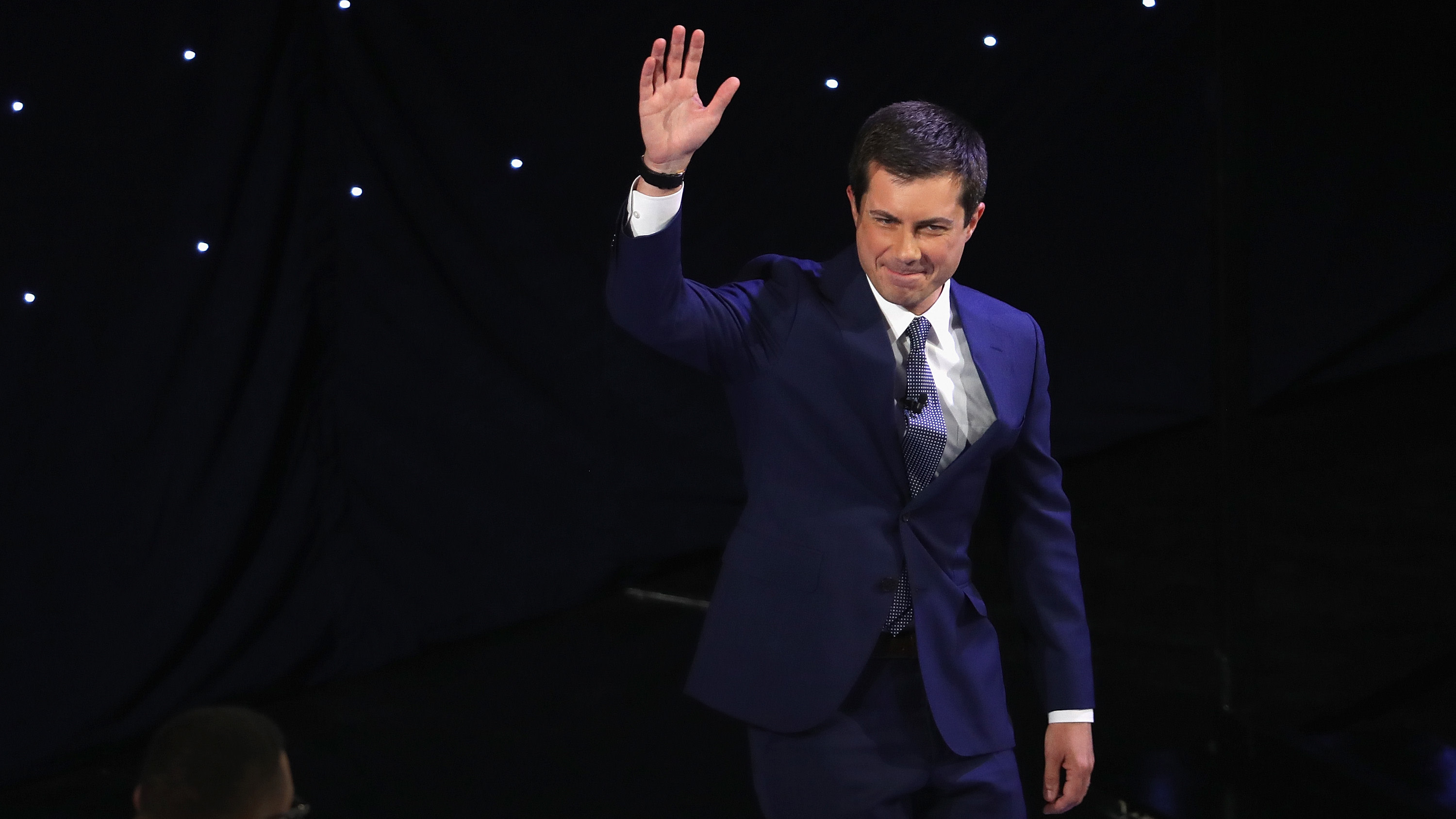Let's Talk Beer With 2020 Presidential Candidate Pete Buttigieg
In a contest that is, let's face it, about who voters instinctively like, Democratic presidential candidate Pete Buttigieg seems very likable. As Michael B. Murphy, a former Republican state senator from South Bend, Indiana, where Buttigieg serves as mayor, put it to The Daily Beast: "Even people who disagree with him on the issues walk away thinking, 'Well, I disagree with him, but he's not a bad guy.'"
The general impression seems to be that Buttigieg is Midwestern and down-to-earth—even with a Harvard degree and the fact he taught himself Norweigian and Dari, among other languages he speaks. But the true test of a candidate's likability is their answer to one question: Would you want to drink a beer with that candidate?
The Takeout spoke to Buttigieg by phone last week to answer this very question. We talked beer, farming, and Iowa's "pork chop situation." (For his stance on whether a hot dog is a sandwich, click here.) This beer reporter's impression? Buttigieg knows his hops.
The Takeout: How did Iowa feel as you traveled through there?
Pete Buttigieg: Delicious.
TO: I heard you really made the rounds at the food tents at the state fair.
PB: We did. I think we had all the foods. It's good, it's classic campaigning and a good opportunity to get to a lot of different communities including many rural areas that I think really have a lot to gain from the ideas we're putting forward but haven't always felt like they've heard much from Democratic candidates. And so there's really a lot to be gained by reaching out to those parts of the state.
TO: We're a food site, so I have to ask the food questions. Anything you particularly enjoyed eating as you traveled through that state?
PB: Obviously the fair food is pretty memorable. There's a soft serve root beer float. There was a pork chop situation, and something called a bacon ball BLT, which was like bacon around a kind of a meatball with cheese in the middle. That was pretty special. The classic fried Oreo experience. So, a lot of memorable fair food. Then, I'm trying to think, on the road, if there was anything out of the ordinary by way of road food. That was a little more standard. When you're campaigning, most of your meals are actually finger food in cars from the last event on your way to the next one.
TO: You're the mayor of a town in the Midwest and were just campaigning in rural parts of the Midwest, so I'd be curious what you're hearing from America's farmers and the agricultural sector. How are they feeling now, and do you have any policies to improve their lot?
PB: Yeah, absolutely. The bottom line is they're feeling squeezed. They've got tariffs and this trade war that is killing a lot of farmers, especially pork and soybean farmers that we met. They're also facing the fact that there's a lot of consolidation and a lot of monopolies so fewer suppliers to buy from, fewer intermediaries to sell to and that just makes it harder and harder.
The big thing you realize when you spend time with farmers is they do math for a living, right? Their specialty is figuring out risks and deciding what mix of crops to plant in a given year, the time when they're going to sell and lock in their contracts, so the big thing that can really harm them is uncertainty. There's already uncertainty from the weather, and from global commodity prices, now there's added uncertainty from the political environment. So our initiatives are largely around first of all, more aggressive monopoly enforcement to help them get ahead.
Another really big thing we're focusing on is inviting farmers to be part of the solution on climate. I think they feel demonized often, but things like soil management and agricultural practices are actually a very big part of how we are going to solve the climate crisis. We need to encourage and pay American farmers in order to pilot some of these really promising modern agricultural techniques.
TO: You mentioned monopoly enforcement. Is there a way to do that without damaging what I would say are pretty low prices Americans are used to paying for agricultural products?
PB: Yeah, I mean there's a balance obviously. But we can't just allow a squeeze on farmers to continue to fund the rest of our wellbeing. Something's got to give. What we're finding is there's also concerns about quality that come into play now as we try to chase the absolute bottom dollar. Farmers take a lot of pride in producing quality goods and in the superiority in a lot of ways of what we produce here at home. And what's happening now is that a lot of this stuff isn't so much being passed on to the consumers as it is going into these enormous profits. The CEO of one hog company made I think almost $300 million in 2017. So this is not necessarily a functioning, efficient market; this is a market where a certain number of players have gotten a lot of power.
TO: A topic I cover extensively at The Takeout is beer and you come from a wonderful beer-brewing state. I was wondering what beer is in your fridge currently?
PB: Well if I'm lucky, if I haven't emptied it out, there should be some Three Floyds waiting for me at home. Alpha King's a good go-to. Gumballhead's pretty tasty as well. And I think it's from over the state line, but I'm pretty partial to Bell's Two Hearted.
TO: So you're a hops guy?
PB: Yeah, though I'm becoming less snobby about that as I age, realizing there's nothing wrong with an accessible, easy-to-enjoy blonde or lager.
